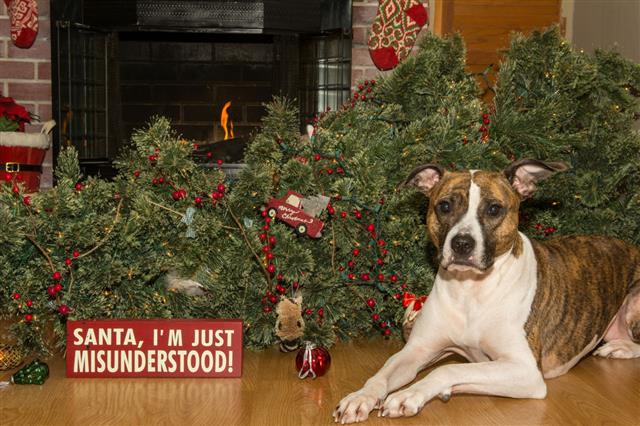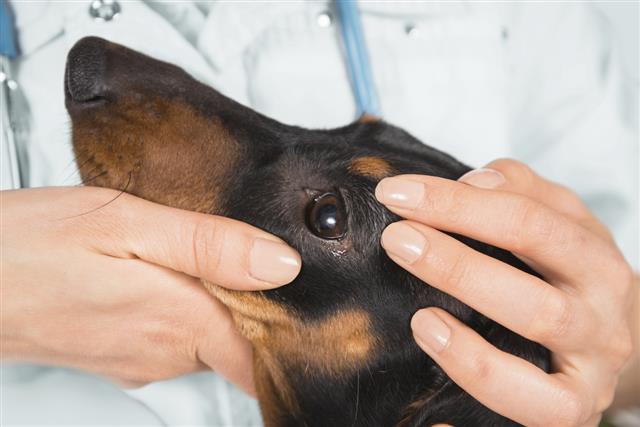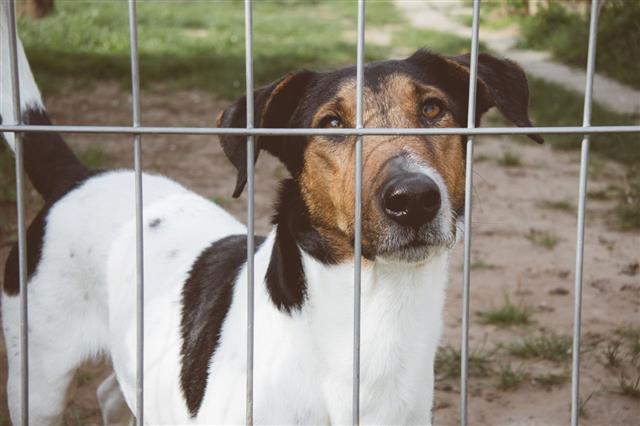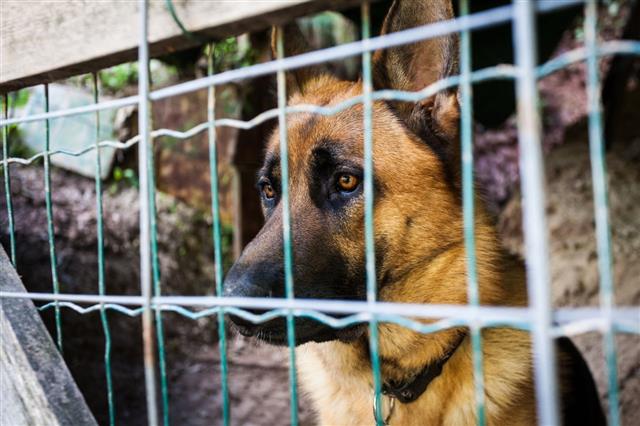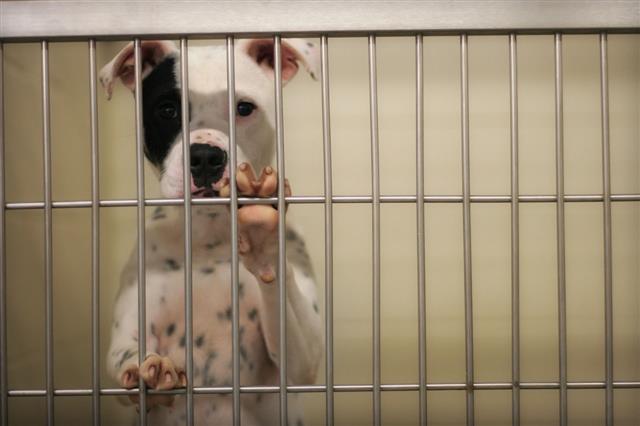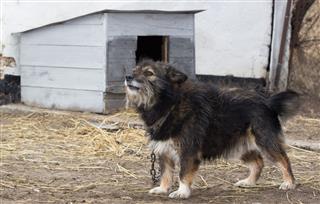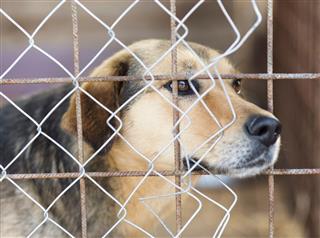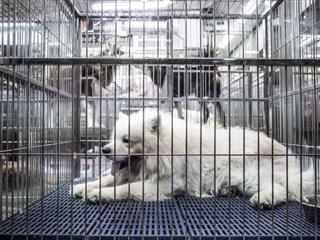
Lately, you’ve been noticing that your dog sleeps more than usual, eats less, and spends most of his time moping around the house. This is quite the opposite of his regular behavior! No doubt, you’re worried. What your furry friend might be experiencing right now is depression, a condition that is not dissimilar to depression in humans.
Did You Know?
Research suggests that dogs are the only animals that can read the emotions on your face. Basically, your dog can tell at a glance if you are happy, angry or sad just by looking at your face.
While experts acknowledge that animals, especially canines, are extremely sensitive, it is very hard to determine if an animal is suffering from a mental illness, and hence, depression as a medical condition in dogs is a much-debated issue. However, pet owners will agree that their dogs display a variety of emotions―be it daily-happiness when dogs enthusiastically greet family members whenever they come home from work or school, apparent guilt when they are scolded for misbehavior. They also exhibit fear or anxiety when you or your pet’s companion is sick, and hence, there is every possibility that your pet experiences depression as an emotion.
Depression in dogs is much like depression in humans―they feel and act withdrawn, listless, and you feel as if they have lost their unquenchable zest for life. While depression is not susceptible to any particular breed, many dogs find themselves suffering from the same, post a major change in their surroundings. This change could range from the death of a companion or someone in the family, moving to a new house, shifting of attention from the dog to someone else, to separation.
How do you know if your dog is depressed?
Your dog might show a number of signs that will tell you if (s)he is depressed. Some of the most common symptoms of depression in dogs are:
Loss of appetite
Normally, dogs happily wolf down their food and might even look beseechingly at their owners for more. If your dog refuses to eat, or eats much lesser than he used to, it could mean that he is depressed. However, the possibility of a stomach condition or any other physical ailment should not be ruled out in this case. Take your dog to the vet to make sure.
Sleeping more than usual
If your dog is depressed, there is a chance that he might be sleeping more than usual. He will act listless and unenthusiastic and will spend most of his time lying around the house, sleeping more than what is normal for him.
Refusing to go for a walk
Most dogs love the outdoors. If your dog isn’t very keen to go for his walk even once a day, there might be something that is emotionally troubling him.
Being overly dependent
If your dog has suddenly started to stick to you or someone else in your family, or one of his toys much more than usual, you could note this as a sign of depression.
Unenthusiastic, listless behavior
This could be the biggest symptom of depression in your dog. Dogs are generally happy, joyful, and extremely enthusiastic about everything around them, and more than often, they succeed in making the people around them feel the same way. However, if your dog seems unenthusiastic, listless, and withdrawn, it may be a sign of a problem.
What could be the reason for your dog’s depression?
Reasons for depression in dogs may vary from dog to dog and the situation he/she might be in. Here are the most common factors that might cause depression in a dog:
A death in the family
If a dog loses his owner or someone else he loves, it is very natural that his depression is because of the grief he is experiencing. The dog may not be able to deal with loss as effectively as humans, and this might lead to depression.
Losing a companion
If a dog loses his companion (a fellow pet), the loss can be very difficult to bear. In such a case, separation will more than often lead to listless, withdrawn behavior on the dog’s part.
Moving to a new house or city
Even moving to a new house, or a new city might be a cause of depression. Your dog is used to a particular house, or a particular area and has associated familiarity with it. Thus, a sudden change might affect him.
Shifting of attention
This happens if there is a new baby, or a new pet in the household. Your dog might feel jealous or neglected when all the attention is shifted to the baby or the new pet.
Separation
Separation can severely affect a dog. Separation can be observed in many forms―the pet owner might take up a new job that keeps him/her away from the dog for a longer period of time, the pet owner may leave the dog at home while traveling for a long duration, or a family member moves out after having spent a lot of time with the dog. In such cases, depression is known to affect dogs.
Ways to cheer up a depressed dog: What can YOU do?
There’s a good chance that your dog’s unhappiness is affecting you too. You are so used to your dog making you happy and cheering you up whenever you’re down, that you can’t bear to see your furry friend so crestfallen! It’s your turn to cheer up your best friend now. Mentioned below are ten tips on how to make a depressed dog happy.
Spend more time with your dog
More than anyone, your dog needs you at this time. Spending more time with your dog will show him how much you love him, and this will help him get over his depression. Your love, care and support are what your dog needs to make the transition from the pits to his happy, joyful self! Take your dog out for a walk, sit next to him and talk to him, try to go about your daily schedule with him nearby, and even if you just spend more time cuddling your dog at home, it’ll help to a great extent.
Socialize your pet
If your dog is depressed because of the loss of a family member or companion, take him out to a dog-park or a dog-daycare center where he can socialize with other canines. Studies propose that animals enjoy same-species companionship, and your dog will feel much better after spending some time with other furry friends.
Indulge in outdoor activities
Taking your dog for a fun afternoon in the park is a great way to cure your dog’s depression. Your dog may not seem very enthusiastic about this at first, but will definitely enjoy the time with you. A change in the surroundings, some physical exercise and quality time with you will help bring back the enthusiasm in your pet. A great outdoor activity option is to play fetch or catch with your dog. If your dog likes water, you may go swimming together. Whatever activity you decide, your dog will cherish this time with you. Humans often observe that post physical exercise, they feel happier than before, and several dog-lovers have claimed the same about their dogs.
Stay happy
Stay happy! This is a very effective idea to cheer up your depressed dog. Remember, pets pick up on the atmosphere at home, and this can help cure the blues. Make sure that everyone in the family is cheerful and happy around your dog. Your dog will feel the joy and love and will start to behave in a manner similar to the household’s. If the family is behaving in a resentful or unhappy manner, it will reflect in the dog’s behavior as well.
Reward him for positive behavior
This is a lot like positive reinforcement. Give your dog a little doggy-treat or an extra pat on the head when he shows signs of getting over his depression. Remember to not be overly sympathetic when your dog is depressed, as this might encourage your pet to stay depressed. Show your dog how pleased you are when he plays with you in the park or eats his meals properly, and he will soon associate your appreciation with positive behavior.
Comfort him with his favorite toys
This idea is ideal for cheering up your dog if you have recently moved to a new house. Even if your dog’s old chew-things and old basket don’t blend into the surroundings of your new home, make sure you keep them for your dog’s sake. Dogs tend to find comfort in familiarity, and will be able to adjust to a new house a lot quicker if they have their favorite things around them. Let your dog choose his own place in the house, and keep his things there to make him happy.
Take him out for a ride
If your dog enjoys going for rides in the car, take him out for a drive to cheer him up. If possible, get your family together when taking your dog out for a drive. Your dog is sure to enjoy the fresh air and being with your family while going out for a ride. However, if your dog is scared of traveling, avoid this idea. If your dog usually only sits in the car before you take him to the vet, avoid this at all costs, as it will only scare him and add to his depression.
Buy him some new toys
Let your dog know how much you love him. Pamper him a little by shopping for him. You don’t have to go all out and splurge―just get him a couple of new toys to play with. It could be a new chew-toy or a new ball for him to play with. Your dog will appreciate the gesture and having some new things to play with might help in cheering him up.
Play some music
This is a highly-debated point among experts, but just like music soothes and calms human beings, many dog-lovers say that it helps calm their pets too. Although it hasn’t been proved yet, it won’t harm your pet to listen to some soothing music to uplift his mood. Make sure the volume isn’t high, or the music might disturb your dog. Also, the music needs to be calm and reassuring. Don’t play music that is loud in nature, it just might upset your dog more.
Set him up on play dates
If you have a relative, a friend or a neighbor who has a dog, it would be a good idea to set your dog up on a play-date. This idea will help especially if your dog is lonely after the loss of a companion, or separation from a family member (for instance, someone from the family has recently moved out, and your dog is finding it hard to cope). Depending on your dog’s nature, you can arrange him to meet other dogs and spend some time with them. Spending time with other canines will help your dog get over depression.
The aforementioned ideas are just some small things which you can do to help your dog get over his/her depression. However, if these ideas don’t seem to help, ask the vet for advice. There are some medical treatments to help cure depression in dogs, but not many people are comfortable with using them. Make sure to get appropriate advice before you take any action.
Disclaimer: The ideas mentioned in the article are not meant to be used as substitutes for medical advice. Depression in your pet could be the result of an underlying medical condition. Please take your pet for regular checkups to make sure he/he is free from medical ailments.


